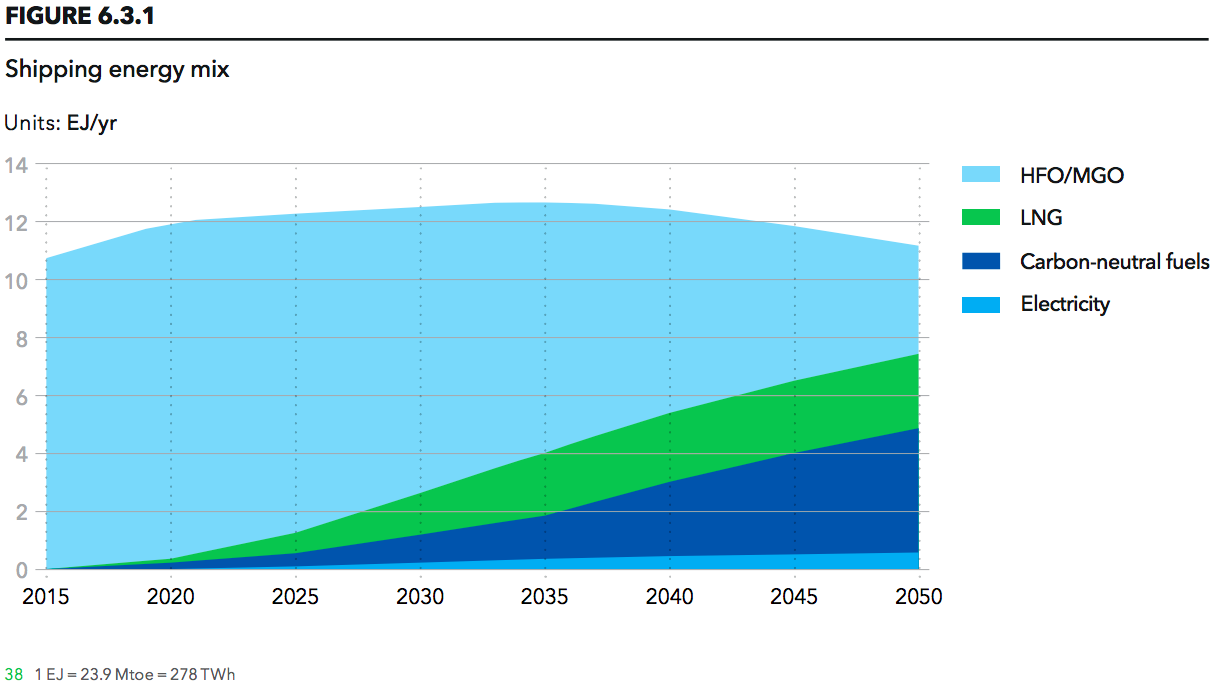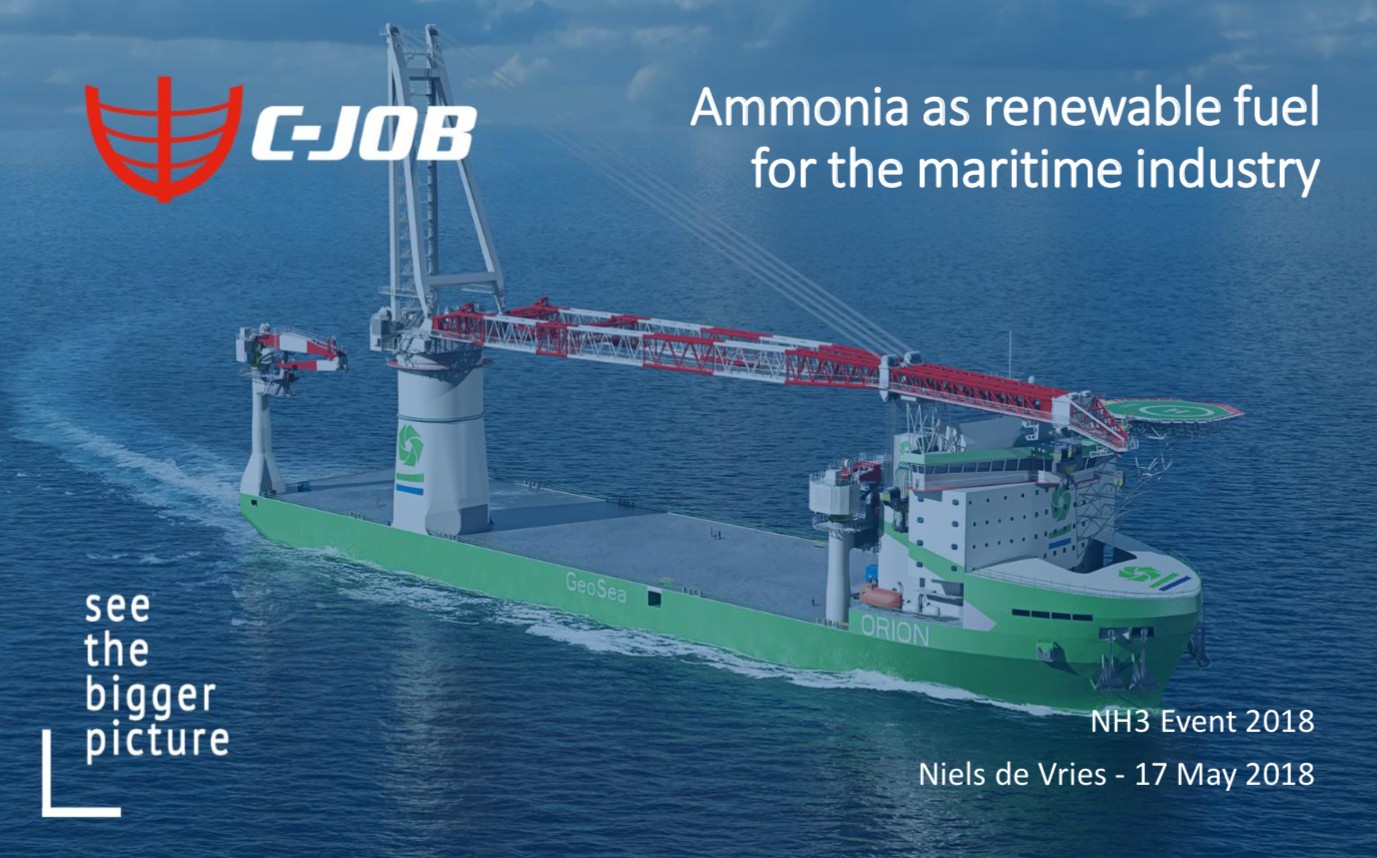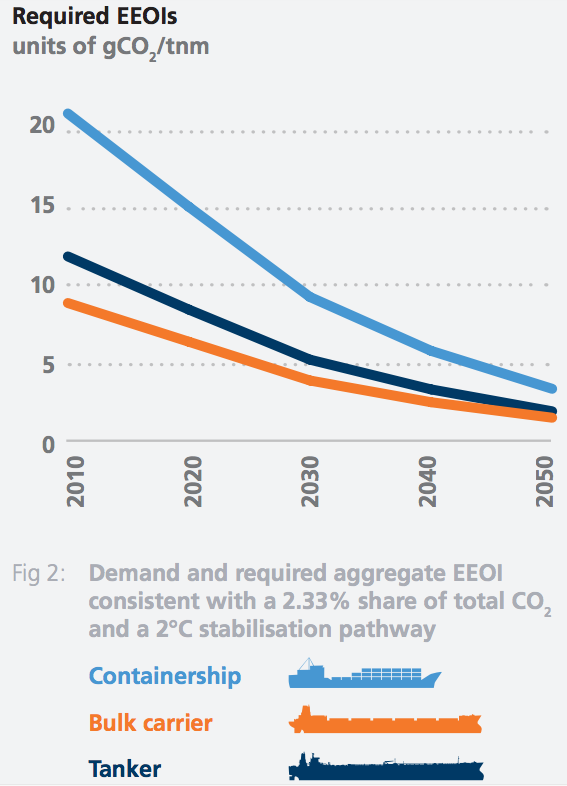In the last 12 months ... The International Maritime Organization issued its Initial GHG Strategy, committing the global shipping industry to emission reductions that cannot be achieved with carbon-based fuels. This single action is the regulatory trigger that unleashes a three-decade transition to carbon-free liquid fuels like ammonia. The target date for this 50% reduction in emissions is 2050 but, given the long economic life of ocean vessels, the transition must begin immediately.
Content Related to International Chamber of Shipping (ICS)
Article
Targets, Limits, Pledges, Bans: Enforcing the Transition to Sustainable Energy
Trevor Brown October 18, 2018
In the last 12 months ... California passed a law mandating 100% carbon-free electricity by 2045; then its governor announced that the state's entire energy system - not just its electricity - would be carbon-neutral by 2045. The Hydrogen Council announced its "goal of decarbonizing 100% of hydrogen fuel used in transport by 2030." The International Maritime Organization set targets for the global shipping sector to “reduce the total annual GHG emissions by at least 50% by 2050,” and completely “phase them out, as soon as possible in this century,” and these targets were swiftly endorsed by the International Chamber of Shipping. Regulators and self-regulating organizations around the world are enforcing systemic decarbonization and accelerating the transition to a hydrogen economy.
Article
Ammonia as a Renewable Fuel for the Maritime Industry
Trevor Brown July 19, 2018
Last week, I wrote about a crucial new report that discusses four fuel technologies: batteries, hydrogen, ammonia, and nuclear. These could reduce the shipping sector's emissions in line with targets set in the IMO's Initial GHG Strategy. The report, Reducing CO2 Emissions to Zero, concludes that "all industry stakeholders ... need to get on with the job of developing zero CO2 fuels." This call to action should be consequential: it comes from the International Chamber of Shipping, an influential industry group that represents "more than 80% of the world merchant fleet." This week, I provide an example of the kind of research required, with an update on a project that aims to demonstrate "the technical feasibility and cost effectiveness of an ammonia tanker fueled by its own cargo." Although this project is still in its early days, I want to highlight three aspects that I believe will be crucial to its success. First, the work is being done by a consortium, bringing together many industry stakeholders, each with its own expertise and commercial interests. Second, the scope of research extends beyond conventional engine configurations to include not just new fuels but also new technology combinations; in other words, rather than assess new fuels in old engines, it aims to develop optimized propulsion designs for zero-emission fuels. And, third, its consideration of ammonia as a fuel begins with a comprehensive safety analysis.
Article
International Chamber of Shipping endorses "Reducing CO2 Emissions to Zero," with ammonia as a maritime fuel
Trevor Brown July 11, 2018
The International Chamber of Shipping has published a short but powerful report to "endorse" the International Maritime Organization's Initial Strategy on Reduction of GHG Emissions from Ships, adopted in April 2018. The ICS report calls the IMO's Initial GHG Strategy "a historic agreement which the global industry, as represented by ICS, fully supports," and discusses four fuel technologies that could deliver the IMO's targets: batteries, hydrogen, ammonia, and nuclear. The ICS report also demonstrates four realities, which apply, perhaps uniquely, to the maritime sector. First, corporations are driving change, in advance of government legislation. Second, these corporations are looking for more than incremental reductions in emissions and instead targeting total sectoral decarbonization with the ambition "to achieve zero CO2 emissions as soon as the development of new fuels and propulsion systems will allow." Third, they realize that LNG and other low-carbon fuels cannot meet these targets: "the ultimate goal of zero emissions can only be delivered with genuine zero CO2 fuels that are both environmentally sustainable and economically viable." Fourth, they recognize that, because ships are long-lived assets, the need to invest in zero CO2 fuel technologies is urgent and immediate.
Article
Bunker Ammonia: carbon-free liquid fuel for ships
Trevor Brown March 23, 2017
The shipping industry is beginning to evaluate ammonia as a potential "bunker fuel," a carbon-free alternative to the heavy fuel oil (HFO) used in maritime transport. International trade associations are leading the effort to decarbonize the sector, in alignment with targets set by the Paris Climate Agreement. Their immediate challenge is simple to state but hard to solve: "ambitious CO2 reduction objectives will only be achievable with alternative marine fuels which do not yet exist." In the long-term, however researchers recognize that "fuel cell-powered ships are likely to dominate, drawing their energy from fuels such as hydrogen and ammonia."



